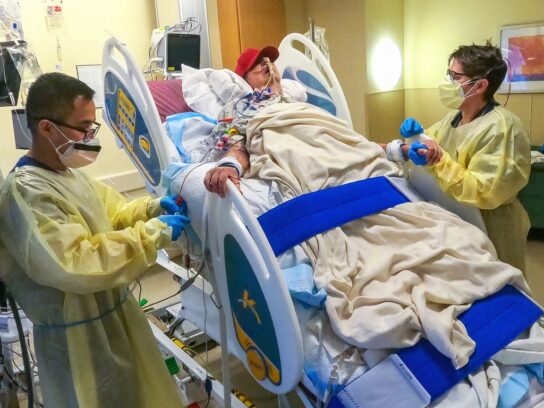
On Jan. 7, 57-year-old David Bennett Sr. became the first person ever to receive a non-human heart transplant, made possible by Silver Spring-based biotech company.
Bennett, who was diagnosed with terminal heart disease, successfully received a genetically modified pig heart transplant at the University of Maryland Medical Center (UMMC).
A United Therapeutics subsidiary, Revivicor, was responsible for the genetically modified pig heart. The organs are manufactured at the company’s headquarters in Silver Spring.
The Maryland resident was deemed ineligible for a conventional human heart donation by UMMC, as well as several other transplant centers upon viewing his medical records.
According to The Washington Post, Bennett was convicted of stabbing Edward Shumaker in a 1988 bar fight, leaving the then-22-year-old paralyzed. Shumaker died in 2007 after suffering from a stroke.
UMMC officials said in a statement that the hospital provides “lifesaving care to every patient who comes through their doors based on their medical needs, not their background or life circumstances.”
Although deemed ineligible for a human heart, the U.S. Food and Drug Administration granted emergency authorization on New Year’s Eve to move forward with the xenotransplant.
Bennett had been bedridden in the hospital a few months leading up to the transplant. “It was either die or do this transplant. I want to live,” Bennett said a day before the surgery. “I know it’s a shot in the dark, but it’s my last choice.”
Several weeks later, Bennett seems to be firmly on the road to recovery. The transplant recipient even watched Super Bowl LVI, singing along with “America the Beautiful.”
“This was a breakthrough surgery and brings us one step closer to solving the organ shortage crisis,” said Bartley P. Griffith, MD, the surgeon who conducted the transplant. “There are simply not enough donor human hearts available to meet the long list of potential recipients.”
UMMC released a video detailing Bennett’s physical therapy and progress, which can be watched online.
“We are proceeding cautiously, but we are also optimistic that this first-in-the-world surgery will provide an important new option for patients in the future,” Griffith said.
